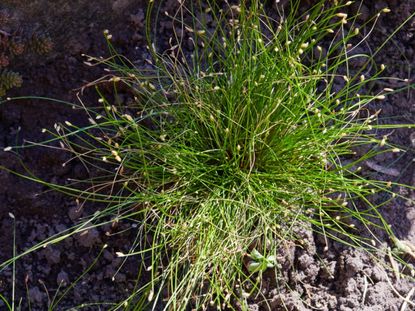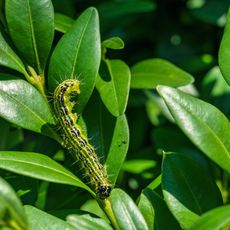What Is Fiber Optic Grass: Tips On Growing Fiber Optic Grasses


Sprays of slender foliage and bright flower tips create a look of electric excitement on fiber optic grass. What is fiber optic grass? Fiber optic grass (Isolepis cernua) is not really a grass but is actually a sedge. It is useful around moist spaces and ponds. The plant is easy to grow and has few pest or disease problems. Ornamental fiber optic grass is also deer resistant, which makes it a great addition to gardens prone to these often pesky plant eaters.
What is Fiber Optic Grass?
The plant is hardy in USDA plant hardiness zones 8-11. It can be potted up and moved indoors in other areas or just enjoyed as an annual. Ornamental fiber optic grass forms a mound with sprays of errant stems springing from the center of the plant like a punk hairdo. The ends of the stems have tiny white flowers that give the overall effect of little lights at the end of the foliage. The plant is native to Western and Southern Europe and found in sandy to peaty zones, often near the sea or other water bodies. Try growing fiber optic grass in a container or water garden.
Growing Fiber Optic Grass
Plant the grass in a mixture of potting soil and peat moss for container plants. The grass grows best in full sun to partial sun. If you want to use it as part of a water garden, allow the roots to sit in deeper and deeper water levels to acclimate. The plant can be trimmed back if it sustains cold or other types of damage. Cut it to within 2 inches (5 cm.) of the ground and it will re-sprout within a couple of weeks. Divide ornamental fiber optic grass every two to three years and plant each section for more of this interesting grass. Growing fiber optic grass from seed is easy. Simply sow in flats with a light dusting of soil. Keep the flat covered and moderately moist in a bright warm area. Allow the seedlings to grow a substantial root system before transplanting them.
Fiber Optic Plant Care
If you want a spectacular plant for soggy situations that brings grace and movement to any bed or display, an ornamental fiber optic plant is a great choice. This is a low maintenance grass that just needs consistent moisture and good light to perform well. Re-pot or divide the plant in spring. Plants in the lower zones benefit from a layer of mulch around the root zone to protect them from cold snaps. Feed monthly with a half dilution of plant food up until fall. Then suspend food during the winter. Not much more is needed for fiber optic plant care. Ornamental fiber optic grass can be overwintered in the colder zones. Bring the plant indoors to a draft-free room with moderate light. Water once per week and keep a fan going to prevent humidity build-up and the promotion of fungal issues.
Gardening tips, videos, info and more delivered right to your inbox!
Sign up for the Gardening Know How newsletter today and receive a free download of our most popular eBook "How to Grow Delicious Tomatoes."

Bonnie Grant is a professional landscaper with a Certification in Urban Gardening. She has been gardening and writing for 15 years. A former professional chef, she has a passion for edible landscaping.
-
 Urban Composting Guide: How To Compost In The Middle Of The City
Urban Composting Guide: How To Compost In The Middle Of The CityUrban composting does not have to be daunting. You can compost in the city, and maybe even try some urban worm composting!
By Mary Ellen Ellis
-
 Shrub Diseases And Pests To Watch Out For
Shrub Diseases And Pests To Watch Out ForShrub diseases and pests can be challenging. Learn how to recognize and eradicate them before they can present a danger to your plants.
By Susan Albert